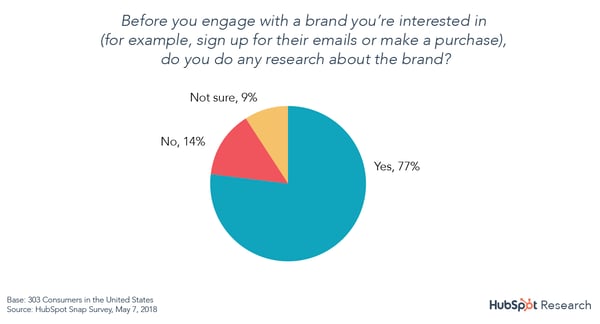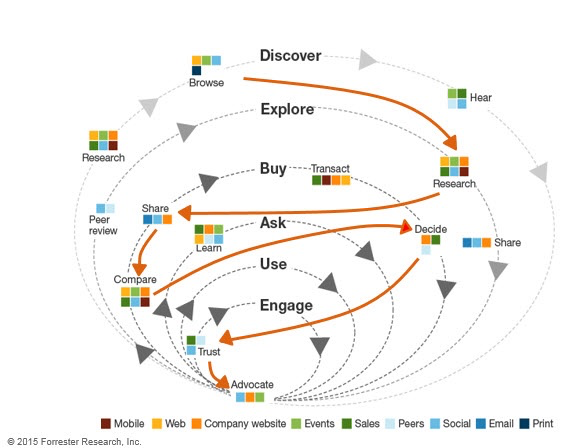What is SEO?
At its core, reseller SEO focuses on nothing else but expanding a company’s visibility in the organic search results. It helps businesses rank more pages higher in SERPs (Search Engine Result Pages.) And in turn, drive more visitors to the site, increasing chances for more conversions.
When asked to explain what SEO is, I often choose to call it a strategy to ensure that when someone googles your product or service category, they find your website.
But this simplifies the discipline a bit. It doesn’t take elements like different customer information needs into consideration. However, it does reveal its essence.
In short, SEO drives two things — rankings and visibility.
Rankings
This is a process that search engines use to determine where to place a particular web page in SERPs.
Visibility
This term describes how prominent a particular domain is in search engine results. With high visibility, your domain is prominent in SERPs. Lower search visibility occurs when a domain isn’t visible for many relevant search queries.
Both are responsible for delivering the main SEO objectives – traffic and conversions.
There is one more reason why you should be using SEO.
The discipline helps you position your brand throughout almost the entire buying journey.
In turn, it can ensure that your marketing strategies match the new buying behavior.
Because, as Google admitted themselves – customer behavior has changed forever.
Today, more people use search engines to find products or services than any other marketing channel. 18% more shoppers choose Google over Amazon. 136% more prefer the search engine to other retail websites. And B2B buyers conduct up to 12 searches, on average, before engaging with a brand.
What’s more, they prefer going through the majority of the buying process on their own.
For example, in recent survey from HubSpot Research, we found that 77% people research a brand before engaging with it.

Forrester revealed that 60% of customers do not want any interaction with salespeople. Further, 68% prefer to research on their own. And 62% have developed their own criteria to select the right vendor.
What’s more, this process has never been more complicated.

Source: Forrester Research
Finally, DemandGen’s 2017 B2B Buyer’s Survey found that 61% of B2B buyers start the buying process with a broad web search. In comparison, only 56% go directly to a vendor’s website.
But how do they use search engines during the process?
Early in the process, they use Google to find information about their problem. Some also inquire about potential solutions.
Then, they evaluate available alternatives based on reviews or social media hype before inquiring with a company. But this happens after they’ve exhausted all information sources.
And so, the only chance for customers to notice and consider you is by showing up in their search results.
Featured Resource
- 22 SEO Myths to Leave Behind in 2019
How Does Google Know How to Rank a Page?
Search engines have a single goal only. They aim to provide users with the most relevant answers or information.
Every time you use them, their algorithms choose pages that are the most relevant to your query. And then, rank them, displaying the most authoritative or popular ones first.
To deliver the right information to users, search engines analyze two factors:
Relevancy between the search query and the content on a page. Search engines assess it by various factors like topic or keywords.
Authority, measured by a website’s popularity on the Internet. Google assumes that the more popular a page or resource is, the more valuable is its content to readers.
And to analyze all this information they use complex equations calledsearch algorithms.
Search engines keep their algorithms secret. But over time, SEOs have identified some of the factors they consider when ranking a page. We refer to them as ranking factors, and they are the focus of an SEO strategy.
As you’ll shortly see, adding more content, optimizing image filenames, or improving internal links can affect your rankings and search visibility. And that’s because each of those actions improves a ranking factor.



Andre,
Muito obrigado pelo comentário.
A ferramenta de CRCODE realmente traz uma comodidade que seria impossível de ser imaginada pouquíssimo tempo atrás. O foursquare, rede social que ajuda as pessoas a encontrarem lugares também pode ser uma ótima alternativa para unir o marketing digital, marketing promocional e mobile marketing em um mix que potencializa os ganhos da empresa. Quanto maior o número de pessoas que tiverem acesso a smartphones, maior será o número de ações que poderão ser criadas.